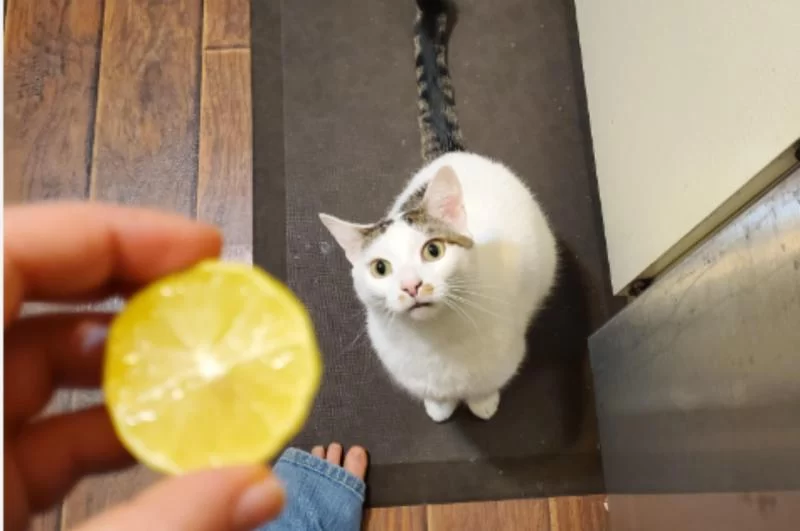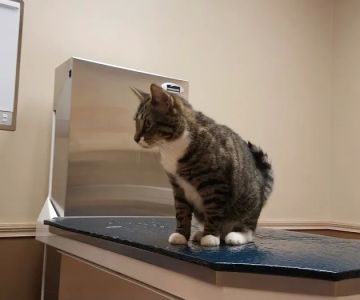When it comes to caring for our feline companions, ensuring they have the right diet is crucial. We know that cats are obligate carnivores, which means their bodies are designed to thrive on animal-based foods. But what happens when they encounter foods that aren't part of their natural diet? One such food that often raises concerns is lemon. Can cats eat lemon, and if not, why is it harmful? Let’s explore this topic in detail.
1. Understanding the Risks of Lemon for Cats
Lemon, like other citrus fruits, contains compounds that can be harmful to cats. The primary issue lies in the high acidity and the presence of essential oils found in lemon peel, both of which can cause discomfort and potential health risks to your cat.

2700 W Higgins Rd, Hoffman Estates, IL 60169, USA
See Details1.1 The Toxic Components of Lemon
Lemons contain citric acid, which can be toxic to cats if ingested in large amounts. While a small taste might not cause immediate harm, the chemicals in lemon, particularly limonene and linalool, are toxic to felines. These compounds can cause symptoms like vomiting, diarrhea, drooling, and in severe cases, can lead to depression and lethargy.
1.2 What Happens If a Cat Eats Lemon?
If your cat accidentally eats lemon, it’s important to monitor them closely. Signs of poisoning can appear within a few hours of ingestion, and they may include nausea, digestive distress, and a loss of appetite. While mild symptoms may resolve on their own, severe reactions require prompt attention from a veterinarian.
2. Can Cats Safely Eat Other Citrus Fruits?
It’s not just lemon that’s harmful to cats. Other citrus fruits like oranges, limes, and grapefruits also contain the same toxic components, posing similar risks. The high acidity and essential oils can upset your cat’s stomach and cause digestive issues. Even the smell of citrus can be overwhelming and unpleasant for cats, making them avoid it altogether.
2.1 The Risk of Citrus Peels
One of the most dangerous parts of citrus fruits for cats is the peel. The peel of a lemon or any citrus fruit contains much higher concentrations of the harmful oils than the flesh. While cats might be attracted to the fruit’s smell or taste, the peel is the most toxic part and should be kept out of reach at all times.
2.2 What Should You Do if Your Cat Eats Citrus?
If your cat ingests citrus fruit, it’s best to contact a vet immediately. Even small amounts can cause digestive upset, and a vet can guide you on how to handle the situation. In some cases, a vet may induce vomiting or administer activated charcoal to absorb the toxins, depending on the severity of the exposure.
3. Alternatives to Lemon for Cats
While lemon may not be safe for cats, there are plenty of other foods that are both safe and healthy for your feline friend. A proper cat diet should focus on high-quality protein sources, and many cat owners opt for specially formulated cat food that meets all their pet’s nutritional needs.
3.1 Safe Fruits for Cats
If you’re looking for a treat to share with your cat, consider fruits that are safe and non-toxic. Apples (without seeds), blueberries, and watermelon are safe in small quantities. Always be sure to remove any seeds or cores, as these can pose choking hazards.
3.2 Feline-Friendly Treats
Aside from fruits, there are plenty of commercially available treats designed specifically for cats. These treats are formulated with your cat’s health in mind, ensuring they get all the nutrients they need without harmful ingredients. At Hidden Brook Veterinary, you can find a wide selection of premium treats and products that support your cat’s health and happiness.
4. Conclusion: Keep Lemon and Citrus Fruits Away from Your Cat
In conclusion, while lemons and other citrus fruits may be safe for humans, they are not suitable for cats. The toxic compounds in these fruits can lead to digestive distress and other health issues for your cat. Always ensure your cat has a diet that’s safe and appropriate for their species, focusing on high-quality animal protein and avoiding foods like lemon that could harm them. If you’re unsure about what foods are safe for your cat, don’t hesitate to consult with your veterinarian.
For more information on keeping your cat healthy, including finding the best products and services, visit Hidden Brook Veterinary. We provide trusted recommendations for everything from pet food to health care services, ensuring your furry friend stays safe and happy.











